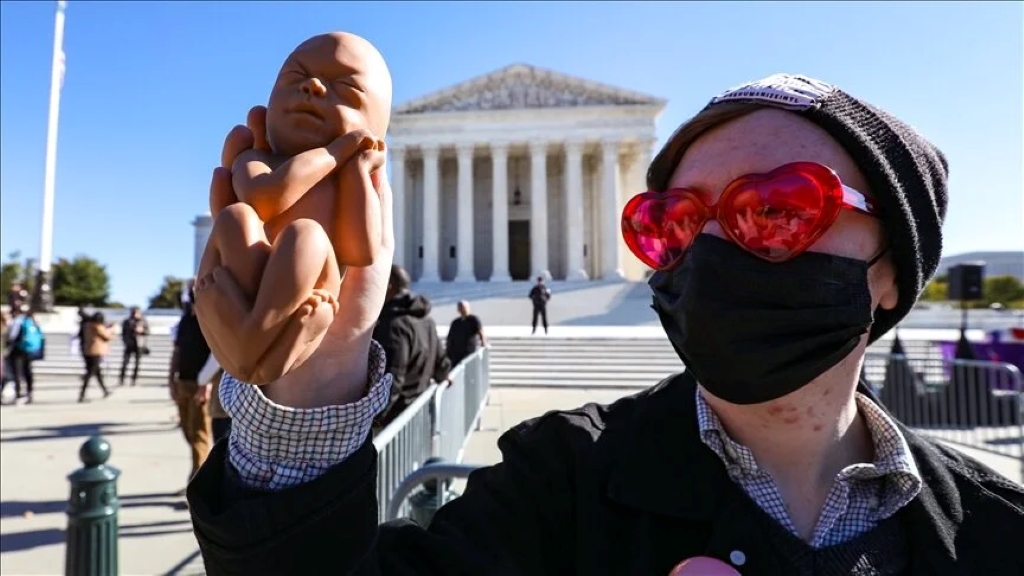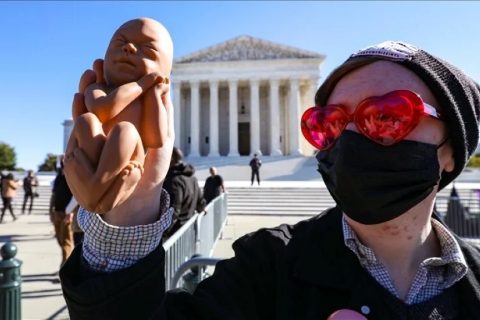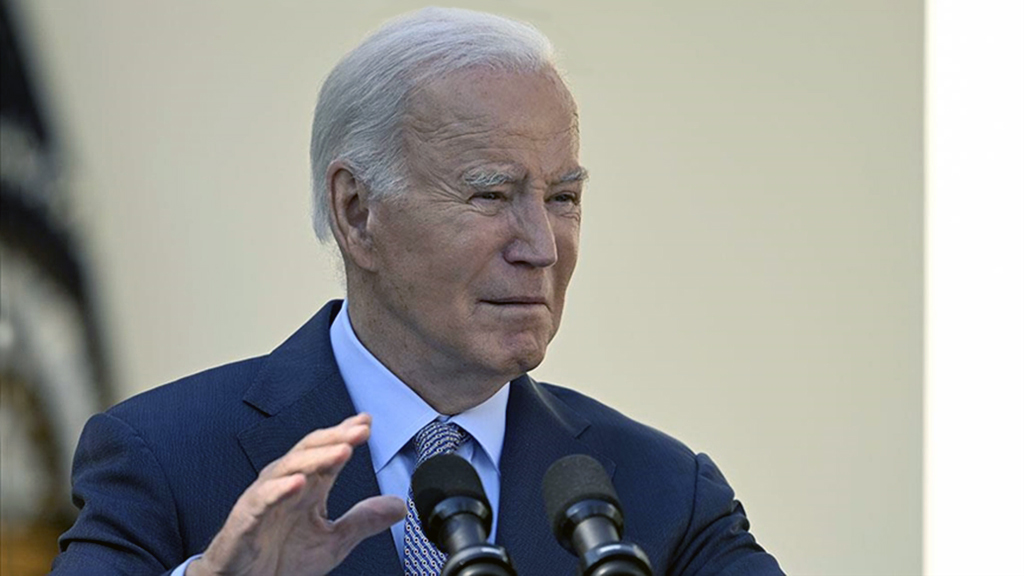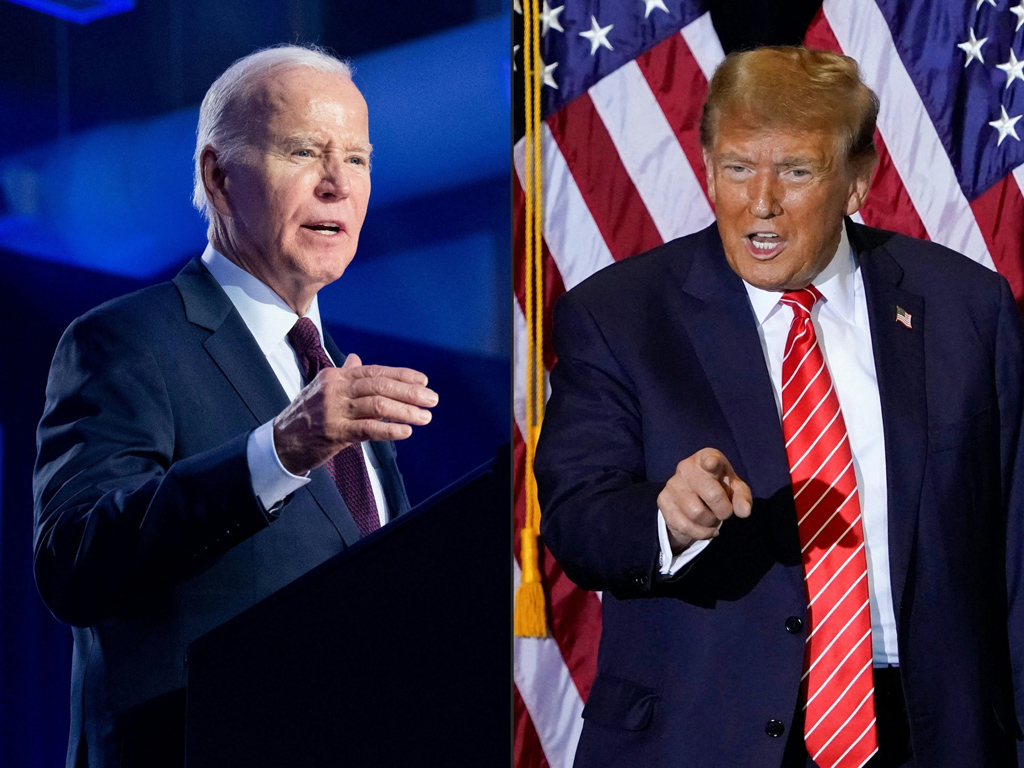Donald Trump

Trump’s election-focused abortion statement
| OpinionIn the presidential race, Trump demonstrated that he would not take an ideological stance on …
-
Opinion
Trump’s election-focused abortion statement
By Kadir ÜstünIn the presidential race, Trump demonstrated that he would not take an ideological stance on the abortion issue, which Biden wanted to make a central agenda. Instead, he refused to be cornered on this issue. Conservative Republican groups expected Trump to support a law that would impose abortion restrictions across the country. However, Trump, having seen how supporting Trumpian candidates who advocated for abortion bans hindered their electoral success in midterm elections, did not want to face the same fate.
-
Opinion
Social media came to Trump’s rescue
By Kadir ÜstünSocial media seems to have come to the rescue for Trump, who's eyeing a return to the presidential race and grappling with financial woes due to recent hefty court fines. In a case brought by New York prosecutor Letitia James, Trump was hit with a record $454 million fine, but he couldn't come up with the necessary bond to prevent his assets from being seized during the appeals process. After the court accepted a $175 million bond and granted additional time, Trump, who owns 60% of the Truth Social platform, saw it go public on the Nasdaq exchange on Tuesday. Within a week, the company, traded under the symbol DJT, experienced around a 70% increase, reaching a market value of $8 billion and effectively adding about $4.5 billion to Trump's net worth on paper. Although Trump won't be able to sell his shares for six months due to stock market rules, he can potentially use them as collateral to secure the required bond from insurance companies.
-
Opinion
Will there be cease-fire in Gaza during Ramadan?
By Muhittin AtamanFor the past five months, Israel has been targeting the innocent people of Gaza, with the United States and most Western governments continuing to mobilize their resources to support Israel’s brutal attacks against Gaza. By now, the attacks have become Israel’s longest intensive military operation against the Palestinians. On the one hand, while the Palestinian people are at their most vulnerable position and facing genocide, hundreds of millions of people around the world are chanting their just cause. On the other hand, as Israel continues its longest and most brutal attacks against the Palestinians, it has lost legitimacy not only in the eyes of the international community but also in the eyes of most of its supporters. It seems that this is the main paradox of post-Oct. 7.
Bu Konuda Daha Fazla
-
Michigan sends Palestine message to Biden, issues centrism warning...
By Kadir ÜstünIn the recent primary elections held in Michigan, a state where Arab and Muslim voters could have a critical impact on the November 2024 presidential race, a clear message was sent to Biden regarding Palestine. Michigan, known as a swing state, saw Trump win over Clinton by a narrow margin of 11,000 votes in 2016. In this week's Democratic Party primary elections, the fact that over 100,000 voters opted for the 'uncommitted' option against Biden constitutes a critical warning to the President. The highly effective 'Dump Biden' campaign launched before the primaries was evidently impactful. Despite Biden's attempts to address the Palestinian backlash with some statements to the press before the primaries, it was revealed that these remarks did not suffice to appease the Palestinian sentiment within the party. So far, Biden has been gauging the reactions of young people, African Americans, and Muslims within the party through polls, but the results of the Michigan primaries indicate a shift in voting behavior among these demographics.
-
World at stake: Dynamics on second anniversary of Russia-Ukraine...
By Burhanettin DuranThe world was not in good shape on the second anniversary of the Russian-Ukrainian war. A quick look at the most recent developments alone would suffice to appreciate that we are entering a period of fragmentation and high risks.
-
An elderly man with a weak memory but good...
By Kadir ÜstünThe recent comments by special prosecutor Robert Hur, appointed by the US Department of Justice, describing President Biden as a 'senile, well-intentioned, elderly man' reignited the debate about Biden's age. Biden's enduring image of being elderly and lacking dynamism seems to be his biggest disadvantage in the November elections. Holding the title of the oldest sitting president in American history, Biden will break his own record as the oldest presidential candidate in the November elections. The fact that Trump, at 77, is running against the 81-year-old Biden will leave American voters with the choice of electing their oldest president. While some argue that age discrimination is unfair, Biden's advanced age has become a significant point of discussion that could influence the outcome of the election. In addition to Biden's memory issues, his controlled and brief appearances in public, contrasted with Trump's more dynamic demeanor, present a serious handicap.
-
Pick your poison: Trump’s threats or Biden’s inertia on...
By Burhanettin DuranDonald Trump, who seeks reelection in the United States, made headlines with his most recent comments on NATO. It is a well-known fact that he had previously described NATO as “obsolete” and condemned NATO allies that did not meet the 2% defense spending target. This time around, the former U.S. president told a crowd in South Carolina that he would encourage Russia to do “whatever the hell they want” to any NATO country that does not meet its financial obligations. He made those remarks shortly after the Republicans blocked military aid to Ukraine and Russian President Vladimir Putin blamed the war on NATO’s fifth enlargement in an interview.
-
The fate of American aid to Ukraine
By Kadir ÜstünInternal political disputes in the United States have reached a new phase, jeopardizing aid flow to Ukraine. Republicans, who announced they would not support aid to Ukraine until border security is ensured, deemed Biden's concessions on border security insufficient. More precisely, they stalled the issue at the behest of Trump to potentially exploit the immigration crisis in the presidential elections. Especially after this strategy was accepted in the House of Representatives, it was rejected by Senate Republicans. With the passage of a $95 billion aid package, the Senate shifted the responsibility of aid to Ukraine, Israel, and Taiwan to Trump-aligned Republicans. If the House of Representatives rejects this aid package under the pretext of the border crisis, it will mark a new phase in the Russia-Ukraine conflict. Avoiding a choice between "war continuation" and "diplomatic solution" until the November elections and managing the current situation should not come as a surprise.

















